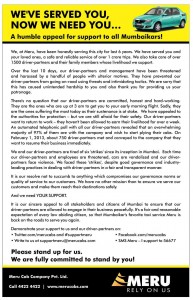Thomas Friedman is a journalist/author who is not really an exceptional journalist or an exceptional author. He has won a few Pulitzer prizes, but he is not popular because of them. His claim to fame is a rather elementary named book, titled, ‘The World is Flat’. Published in 2005, it is  quite a simple book talking about the state of affairs of the world, especially in connection with globalization. The book speaks of how the world is coming together as one big place from Denver to Dalian to Bangalore. It was meant to be a chronicle of our times, and a sort of prognosis of the things that are yet to come. Friedman reaped rich rewards from his book, traveling across the globe, giving talks and discussing the subject.
quite a simple book talking about the state of affairs of the world, especially in connection with globalization. The book speaks of how the world is coming together as one big place from Denver to Dalian to Bangalore. It was meant to be a chronicle of our times, and a sort of prognosis of the things that are yet to come. Friedman reaped rich rewards from his book, traveling across the globe, giving talks and discussing the subject.
When the book came out, there was much fanfare around it. The book seemed to propose a hypothesis, no less significant, than say E=MC² or better still, like the discovery of New World by Msieu. Columbus.
The book spoke about a new globalized inter-connected world where information, people, money and even ideas moved across at breathtaking speed. It was a world where, kids in the US had to be wary of growing up in a world, where kids in India or China could easily replace them. The world was being progressively flattened, and there was little to do to prevent the eventuality.
It has been a decade since Friedman came up with book and much water has flown in the Mississippi River or the Yangtze or even the Ganges since then to erode the beautiful facade of ‘flatness’. I recall listening to all a talk by Friedman, which he gave in Mumbai at NASSCOM summit. In it, he spoke about how times had changed from the past, when American kids would leave food on the plate and their parents would chide them, “spare a thought for the hungry millions in India”. And now, when the kids are disinclined to study, the current parents warn their kids, “be scared of the learning millions in India”. Honestly, my heart swelled with happiness at the prospect of living in a world where nationality did not dictate your destiny. We could be anyone, we wanted, so long as we wanted it hard enough. The future indeed seemed rosy and bright, during such times.
Cut to today, and I chanced upon the latest vitriol by Republican presidential nominee (and possibly — god forbid, would-be American President) Donald Trump, wherein he blamed India, China  and Mexico for the “greatest jobs theft” in the history of the world. According to him, Indians and other nationals were gobbling up American jobs. Indians were no more a threat, but rather scheming thieves that stole and cheated. Now how could that narrative change so quickly? What happened to that ‘flat world’ that was meant to be equal for all Continue reading
and Mexico for the “greatest jobs theft” in the history of the world. According to him, Indians and other nationals were gobbling up American jobs. Indians were no more a threat, but rather scheming thieves that stole and cheated. Now how could that narrative change so quickly? What happened to that ‘flat world’ that was meant to be equal for all Continue reading

